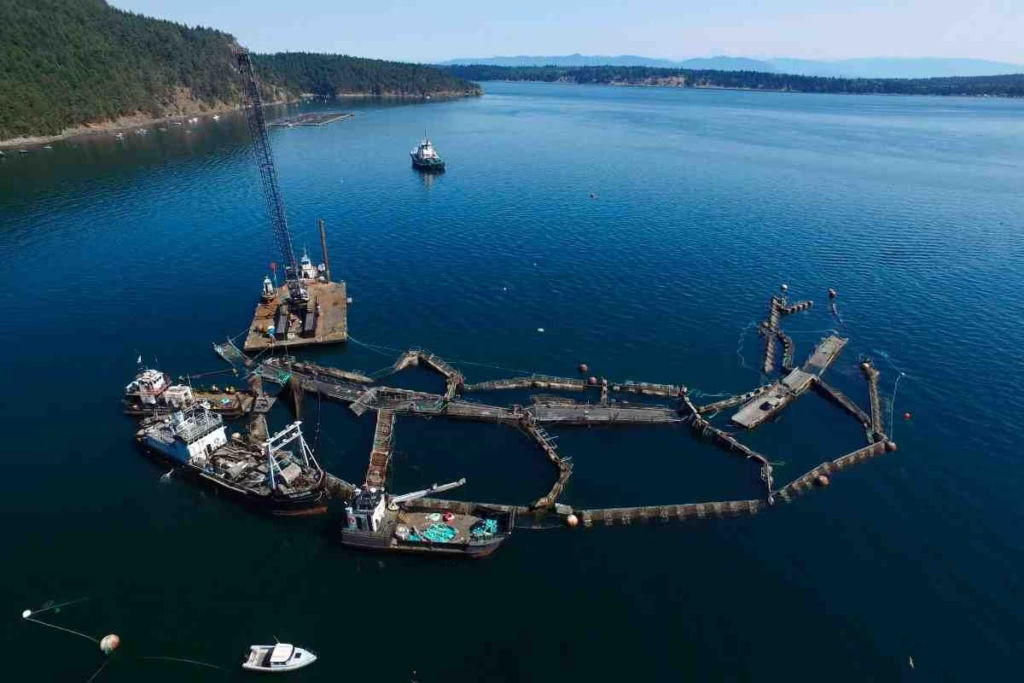
Washington State Makes History: First to Ban Commercial Net-Pen Aquaculture
Washington State has made history as the first place in the world to ban and remove commercial net-pen aquaculture. This groundbreaking decision, finalized on January 9, 2025, by the Washington State Board of Natural Resources, prohibits net-pen farming of finfish in all state-owned marine waters.
The move comes after years of public concern over the environmental impacts of net-pen farming, particularly with non-native species like Atlantic salmon. The ban is being celebrated as a victory for environmental preservation and a step toward protecting native fish populations and local ecosystems.
Why Washington Banned Net-Pen Aquaculture
The push to eliminate net-pen farming gained momentum after a major disaster in 2017 when over 250,000 Atlantic salmon escaped into Puget Sound following a facility collapse. This incident exposed the dangers of such operations, including pollution, disease transmission, and threats to native wildlife.
Following the incident, Commissioner of Public Lands Hilary Franz spearheaded efforts to phase out net pens by denying new leases and issuing an executive order to stop future net-pen operations in state waters.
Positive and Negative Impacts of the Ban
Benefits of the Ban
- Protecting the Environment
The ban ensures the health of wild salmon and the Southern Resident orcas, which depend on a clean and thriving ecosystem. Conservationists see this as a significant victory for preserving biodiversity in Puget Sound. - Community Empowerment
Local communities and environmental groups played a key role in advocating for this change, with over 80% of public comments supporting the ban. - Cultural Significance
The ban aligns with efforts by Indigenous tribes, such as the Lower Elwha Klallam Tribe, to restore salmon habitats and uphold treaty fishing rights.
Challenges of the Ban
- Economic Concerns
Critics argue that the ban may result in job losses, especially in rural areas where net-pen aquaculture provided employment. - Impact on Tribal Economies
Some tribal leaders worry the decision might limit aquaculture-related opportunities that have historically supported their communities. - Food Security Issues
By reducing locally farmed fish, the ban could impact seafood availability, raising concerns about food security as global demand grows.
A Global Example
Washington’s decision sets a global example for balancing environmental sustainability with economic considerations. While challenges remain, the state has shown a strong commitment to protecting marine life and ensuring long-term ecosystem health.
